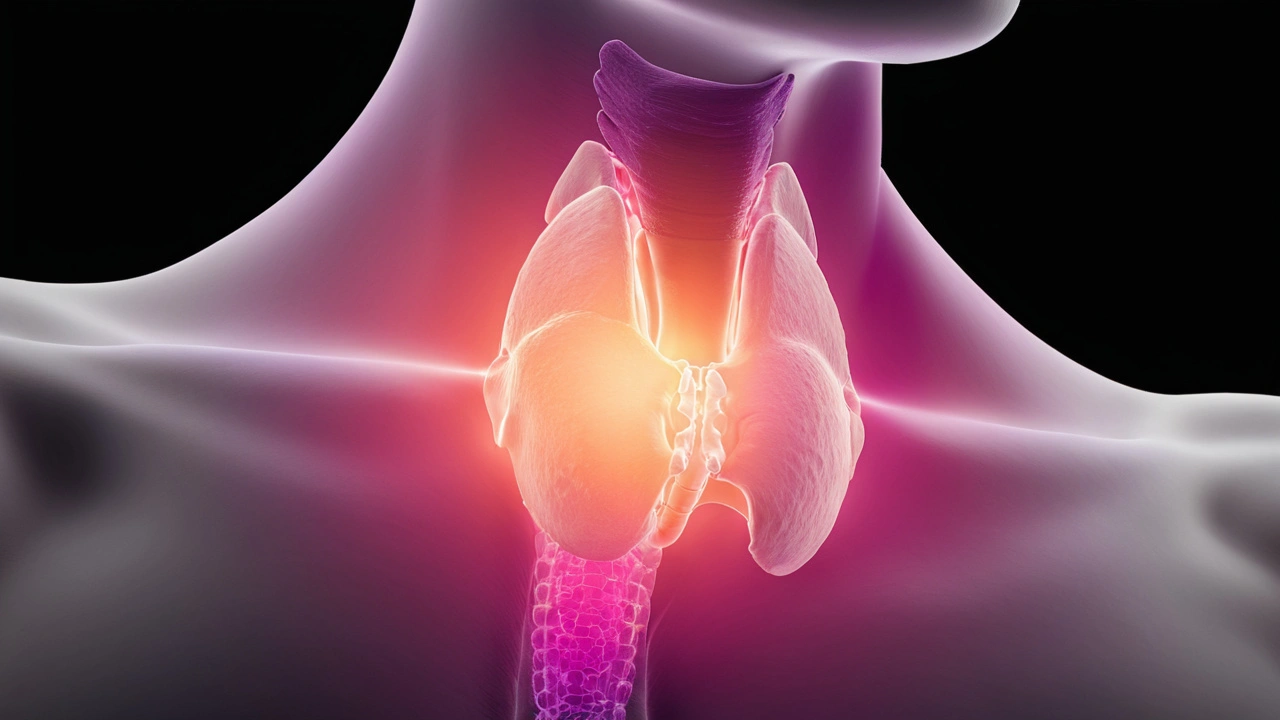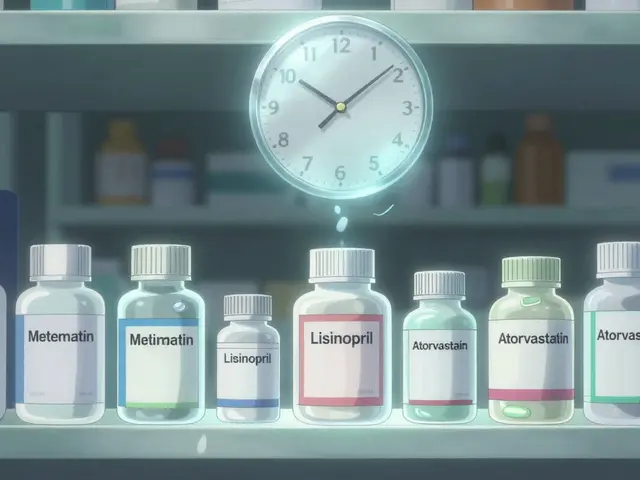Hypothyroidism – What You Need to Know
If your thyroid is running slow, you might feel constantly tired, cold, or notice weight gain that won’t budge. That’s what doctors call hypothyroidism – a condition where the thyroid gland doesn’t make enough hormones to keep your metabolism humming.
Most people get hypothyroidism because of an autoimmune attack called Hashimoto’s thyroiditis, but surgery, radiation, or certain medications can also shut down hormone production. Women are hit harder than men, especially after pregnancy or during menopause.
What is Hypothyroidism?
The thyroid makes two key hormones – T4 (thyroxine) and T3 (triiodothyronine). When these drop, every organ feels the impact. Common signs include:
- Fatigue that doesn’t improve with rest
- Feeling chilly even in warm rooms
- Dry skin, hair loss, and brittle nails
- Unexplained weight gain or difficulty losing weight
- Memory fog, difficulty concentrating, or mood swings
Because these symptoms overlap with many other conditions, a simple blood test measuring TSH (thyroid‑stimulating hormone) and free T4 confirms the diagnosis.
Managing Your Thyroid Health
Once diagnosed, most patients feel better with daily hormone replacement – usually levothyroxine. The trick is finding the right dose. Your doctor will start you on a low amount, then adjust based on follow‑up labs and how you feel.
Here are a few practical steps to keep your thyroid on track:
- Take medication consistently. Levothyroxine works best on an empty stomach, 30‑60 minutes before breakfast, with a full glass of water.
- Watch your iodine intake. Too little or too much iodine can mess with hormone production. Aim for a balanced diet with dairy, fish, and iodized salt, but avoid excessive supplements.
- Mind your coffee and fiber. Both can lower levothyroxine absorption. If you love coffee, wait at least an hour after your pill before sipping.
- Stay active. Light exercise boosts metabolism and helps counteract weight gain. Even a daily walk makes a difference.
- Check other meds. Some drugs – like certain antidepressants, calcium, or iron supplements – can interfere with thyroid meds. Schedule them at opposite times of day.
Regular blood checks every 6‑12 months keep your dose spot‑on. If you notice new symptoms, let your doctor know right away – dosage tweaks are common.
Besides medication, a few lifestyle tweaks can ease the sluggish feeling. Adding selenium‑rich foods (Brazil nuts, sunflower seeds) and vitamin D can support thyroid function. Manage stress with breathing exercises or short meditation; chronic stress raises cortisol, which can blunt thyroid hormone activity.
Our site also covers related topics that often come up with hypothyroidism, such as how certain supplements interact with levothyroxine, tips for safe online pharmacy purchases, and ways to track your symptoms. Browse the articles below for deeper dives into medication safety, diet plans, and real‑life stories from people living with low thyroid.
Bottom line: hypothyroidism is manageable with the right medicine, a steady routine, and a few smart lifestyle choices. Stay on top of your labs, listen to your body, and don’t hesitate to ask your healthcare provider for adjustments. You can keep your energy up and feel like yourself again.
FDA Approves New Advancements for Levothyroxine Sodium in Hypothyroidism Treatment
The FDA has approved significant label changes for Tirosint-SOL, an oral solution for hypothyroidism, allowing its use with PPIs and administration before breakfast, setting it apart from other treatments.





